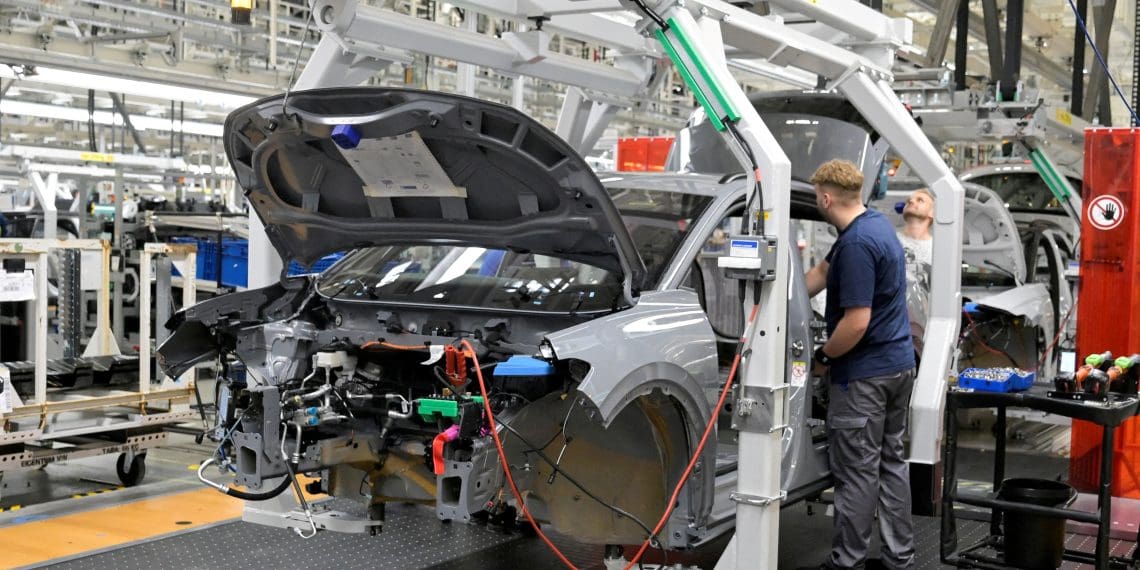The Volkswagen Group is facing a financial crisis in Europe that could result in the closure of several manufacturing plants in Germany, but its works council is fighting to prevent mass layoffs and shutdowns. Daniela Cavallo, the works council leader, has proposed sweeping wage reductions and suspended bonuses as a solution, targeting both blue-collar and white-collar jobs—including executives and board members.
A Bold Plan to Avoid Factory Closures
Cavallo presented the proposal during a press conference ahead of critical negotiations with VW management. The suggested cuts aim to significantly reduce labor costs, which currently make up 15.4% of VW’s revenue in Germany, far exceeding competitors like Stellantis, BMW, and Mercedes-Benz, whose labor expenses range between 9.5% and 11%.
Labor costs at Volkswagen are among the highest in the German automotive industry, with workers earning an average of $66 per hour. Despite this, Cavallo argued that labor expenses represent only a fraction of the $18 billion in savings VW management is seeking to achieve. By targeting wages and bonuses, the works council believes the company can avoid drastic measures like plant closures.
Factories on the Chopping Block
The financial strain is threatening the future of three of VW’s six German factories, including:
- The Transparent Factory in Dresden: Currently building the ID.3 electric car, the facility is relatively small and viewed as expendable.
- Osnabrück Factory: Producing the Porsche 718 twins and the Volkswagen T-Roc Cabriolet, Europe’s most popular mainstream convertible. With the 718 models slated for electric replacements, Osnabrück’s future is uncertain.
- A Third Unnamed Facility: Reports suggest another factory could also face closure, though details remain vague.
If the closures proceed, it would mark a significant blow to Volkswagen’s domestic manufacturing base and its workforce.
VW’s Declining Earnings Add Pressure
The crisis comes as Volkswagen struggles with declining earnings across its brands. The works council highlighted losses amounting to $5.8 billion across VW Group subsidiaries like Porsche, Audi, and VW Financial Services during the first three quarters of 2024. This financial pressure has intensified the need for drastic cost-saving measures.
Labor Costs Under the Microscope
The works council’s defense of labor costs points to Volkswagen’s competitive challenges in the electric vehicle (EV) market, where profitability remains elusive. VW’s management is pushing for rapid transformation as the industry shifts toward EVs, but high labor costs and lagging earnings threaten to derail its plans.
What’s Next for Volkswagen?
The proposed wage cuts and bonus suspensions could buy Volkswagen time to stabilize its finances without resorting to factory closures. However, it remains unclear whether management will accept these measures or push for more aggressive actions.
For now, all eyes are on the negotiations between the works council and VW leadership. The outcome will determine whether Volkswagen can avoid a massive domestic restructuring or face a painful downsizing of its operations in Germany. As the world’s second-largest automaker grapples with unprecedented challenges, its ability to navigate this crisis will have far-reaching implications for its workforce, its brand, and the broader automotive industry.










